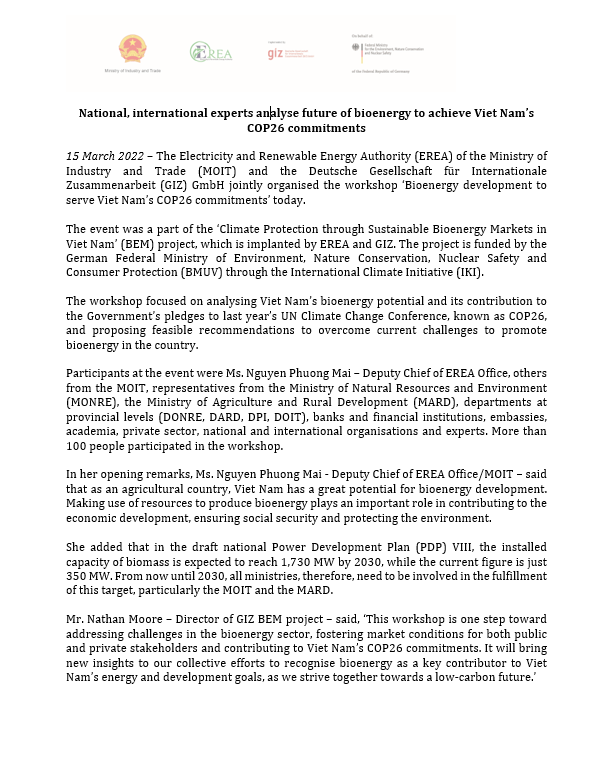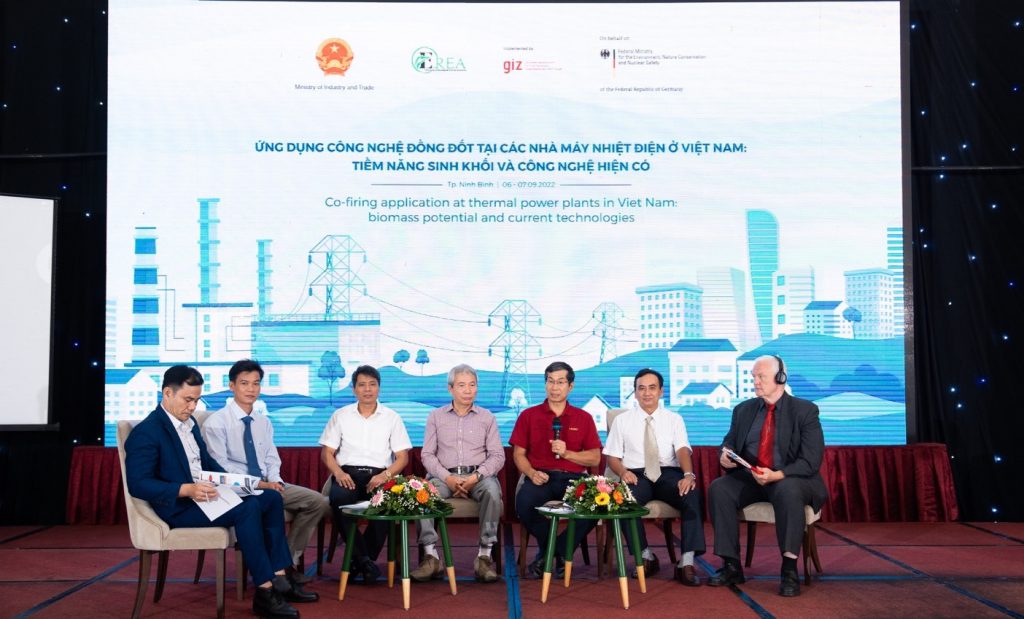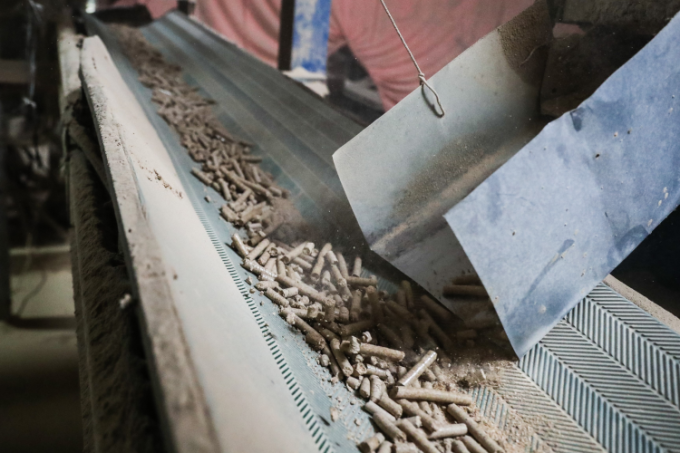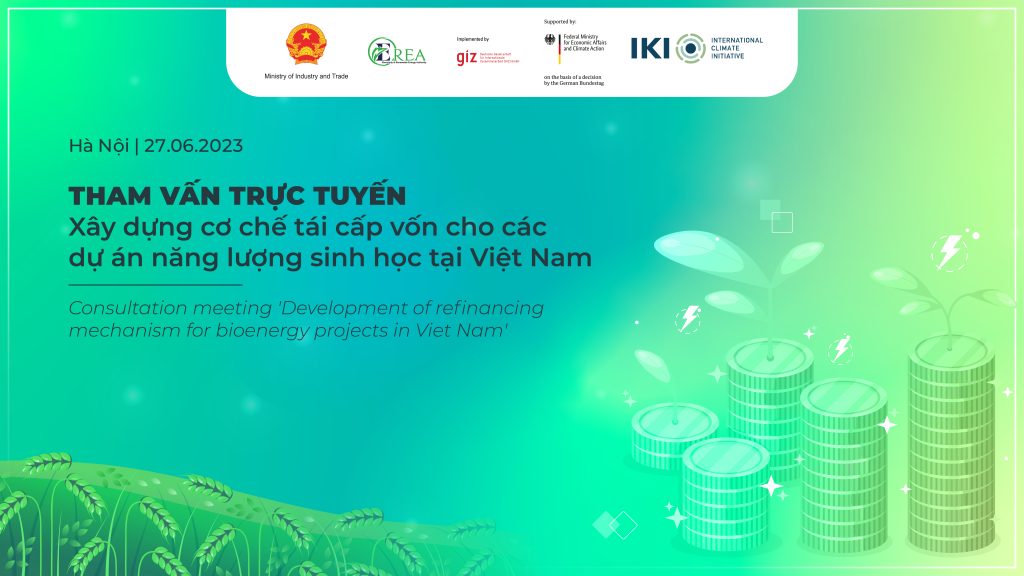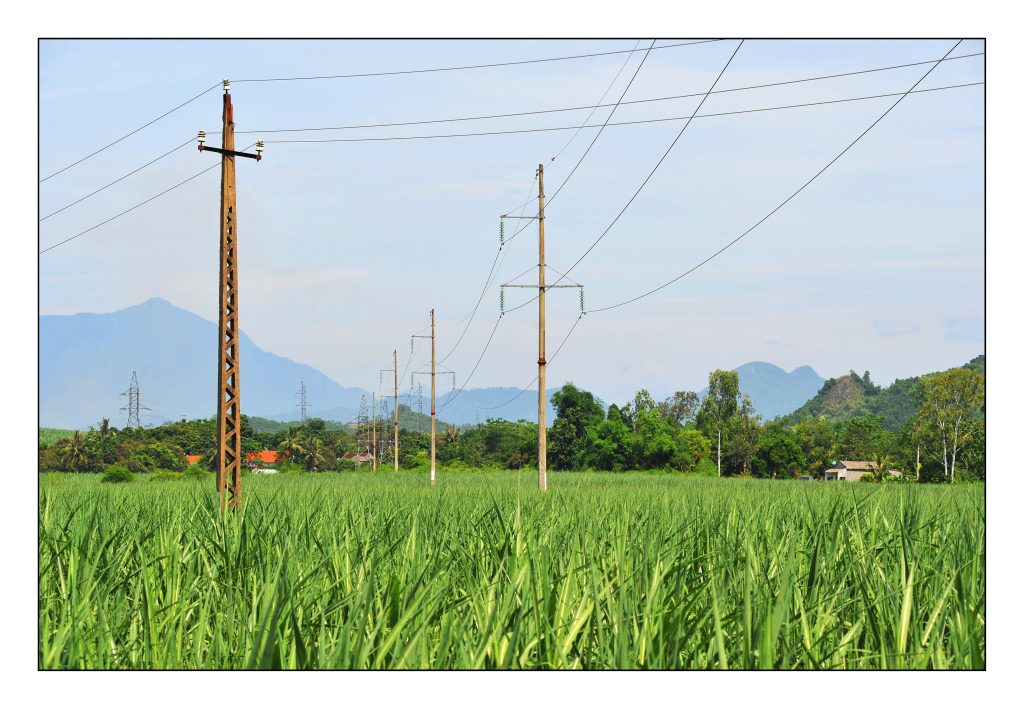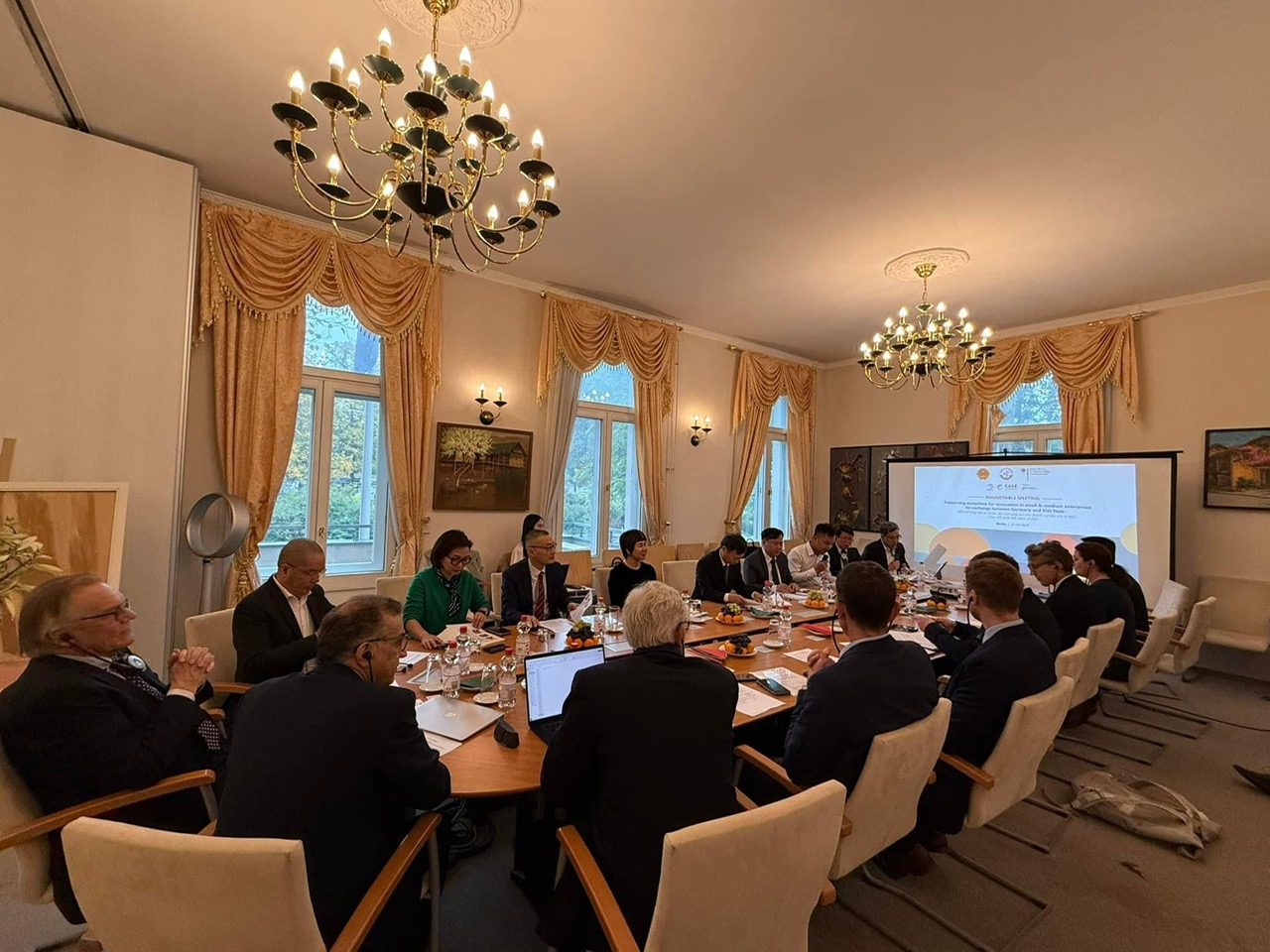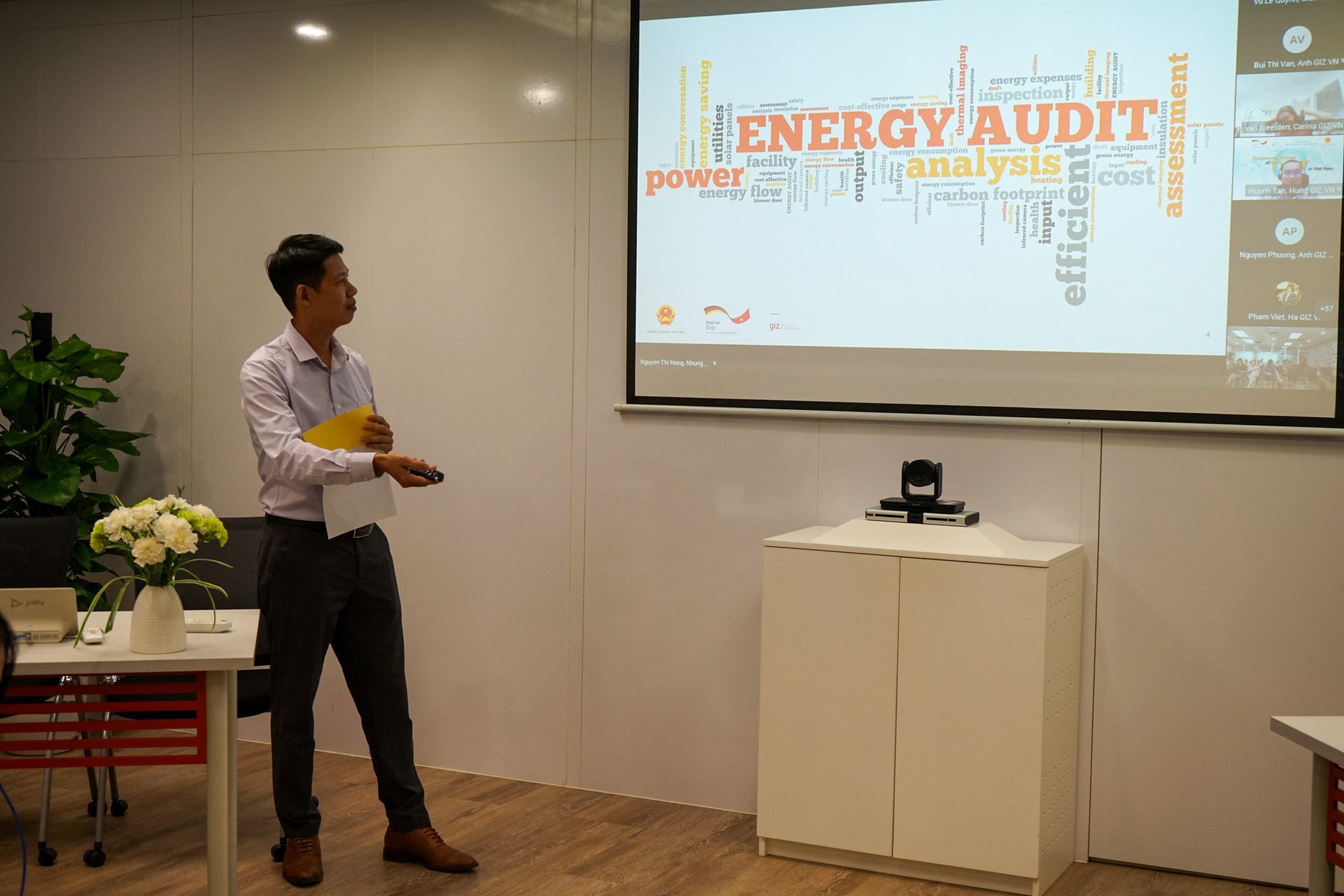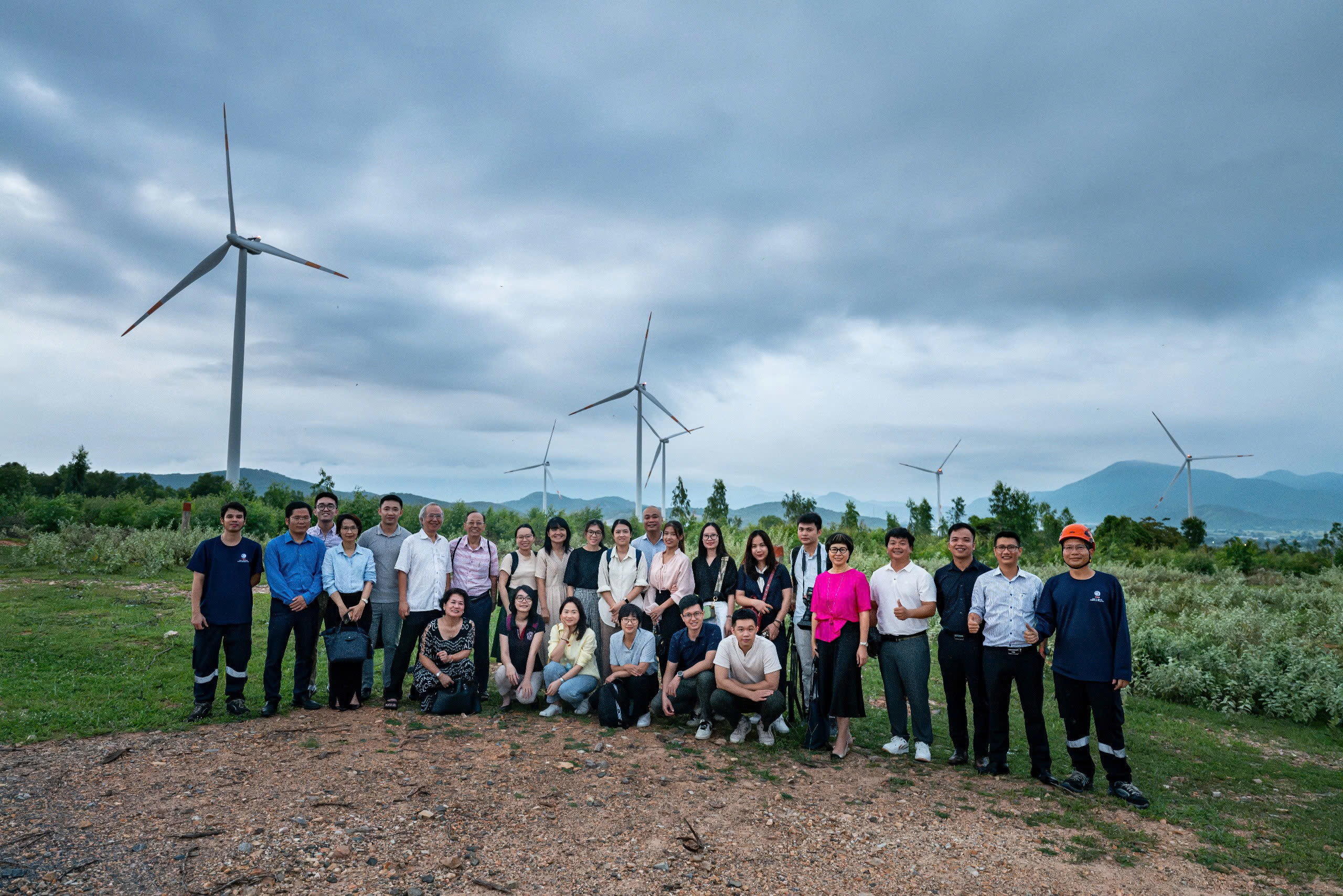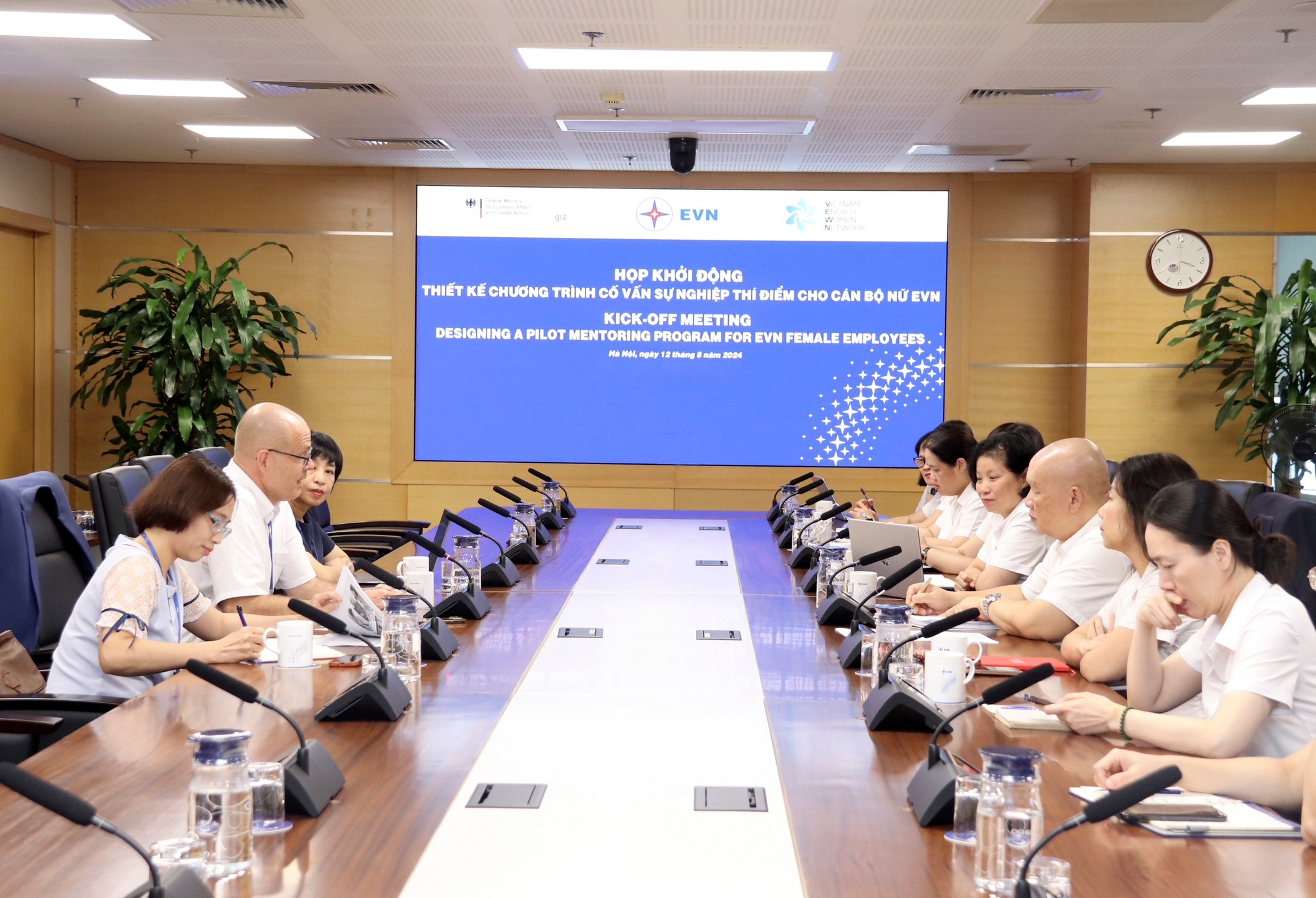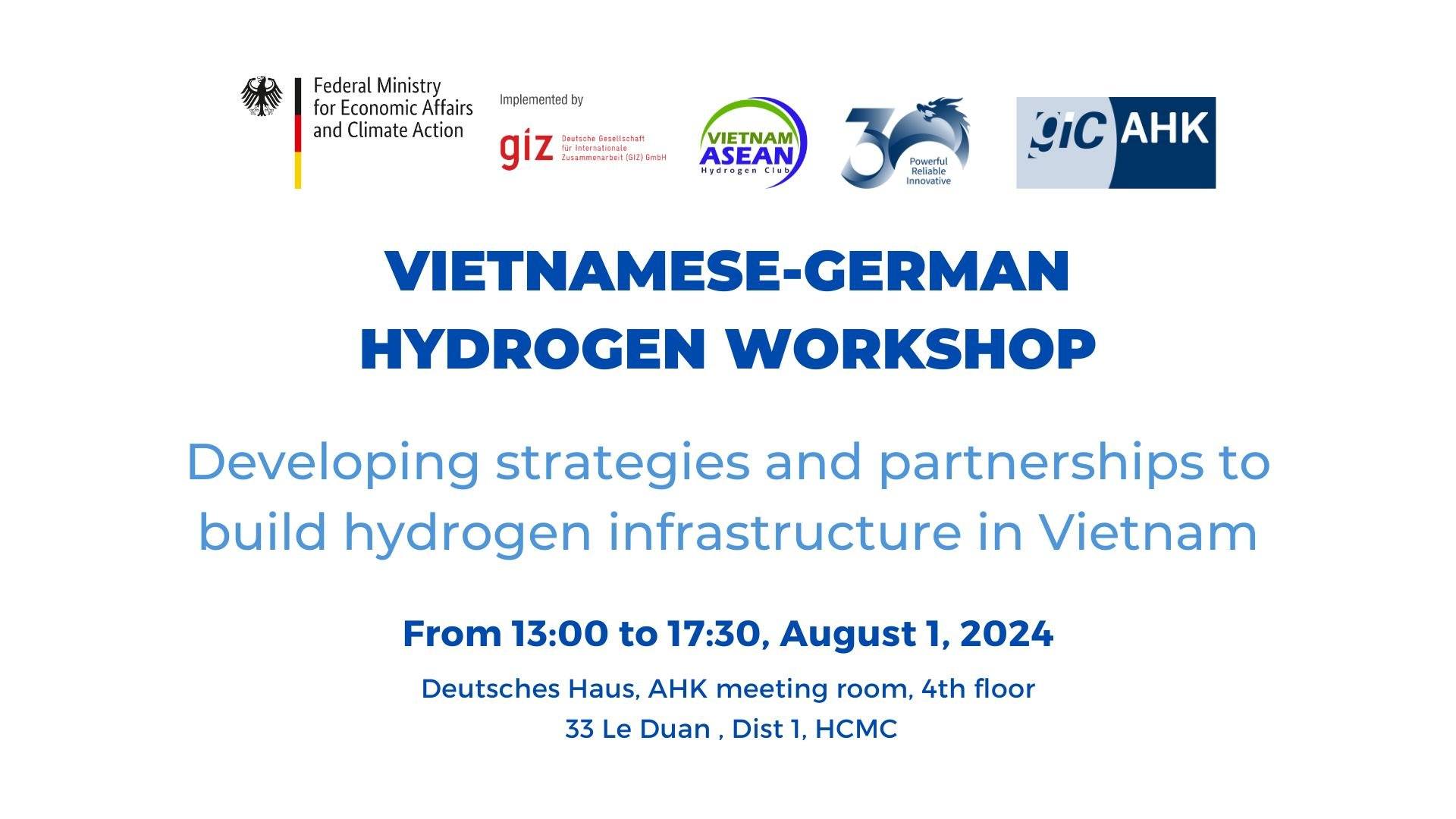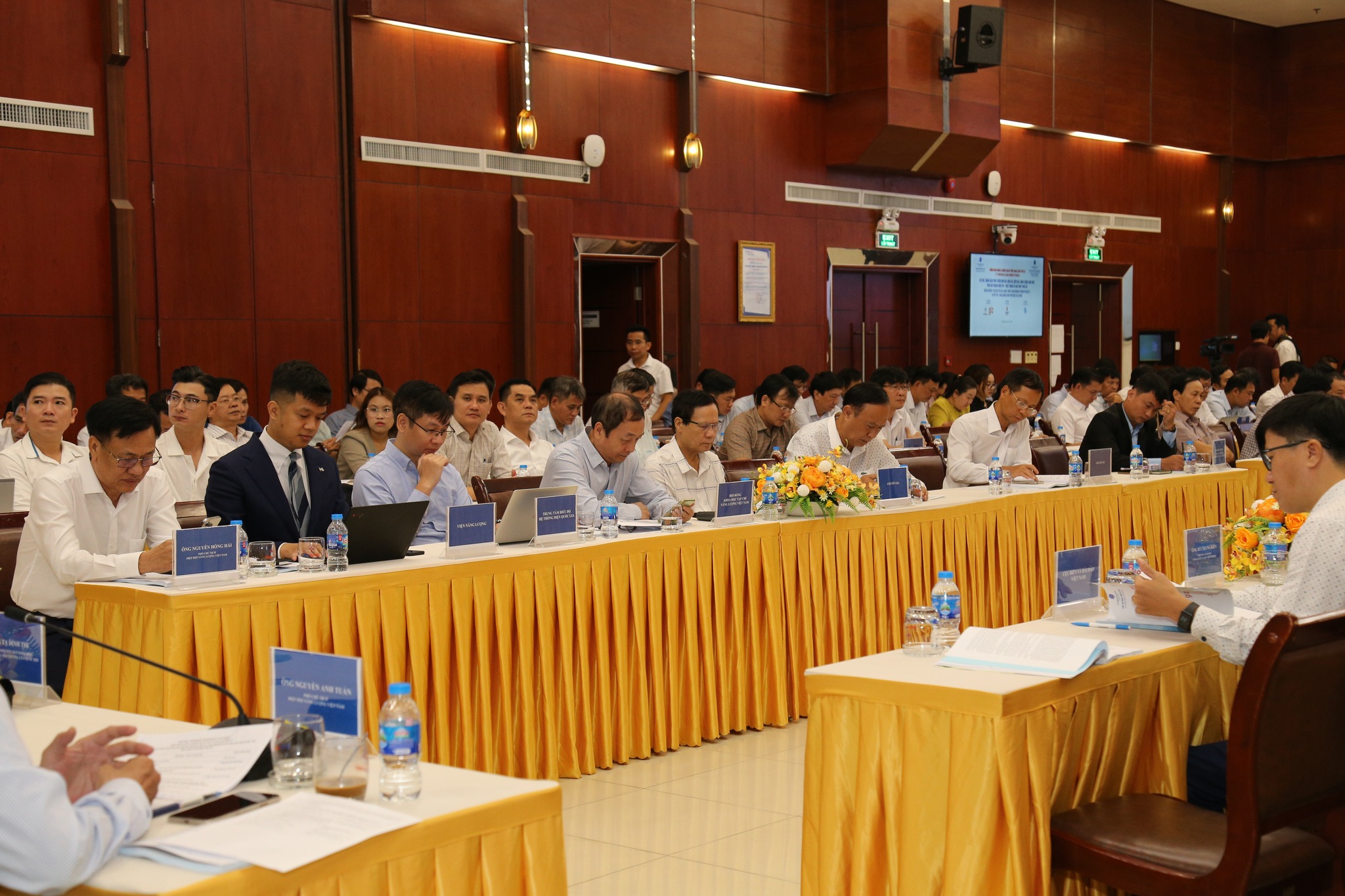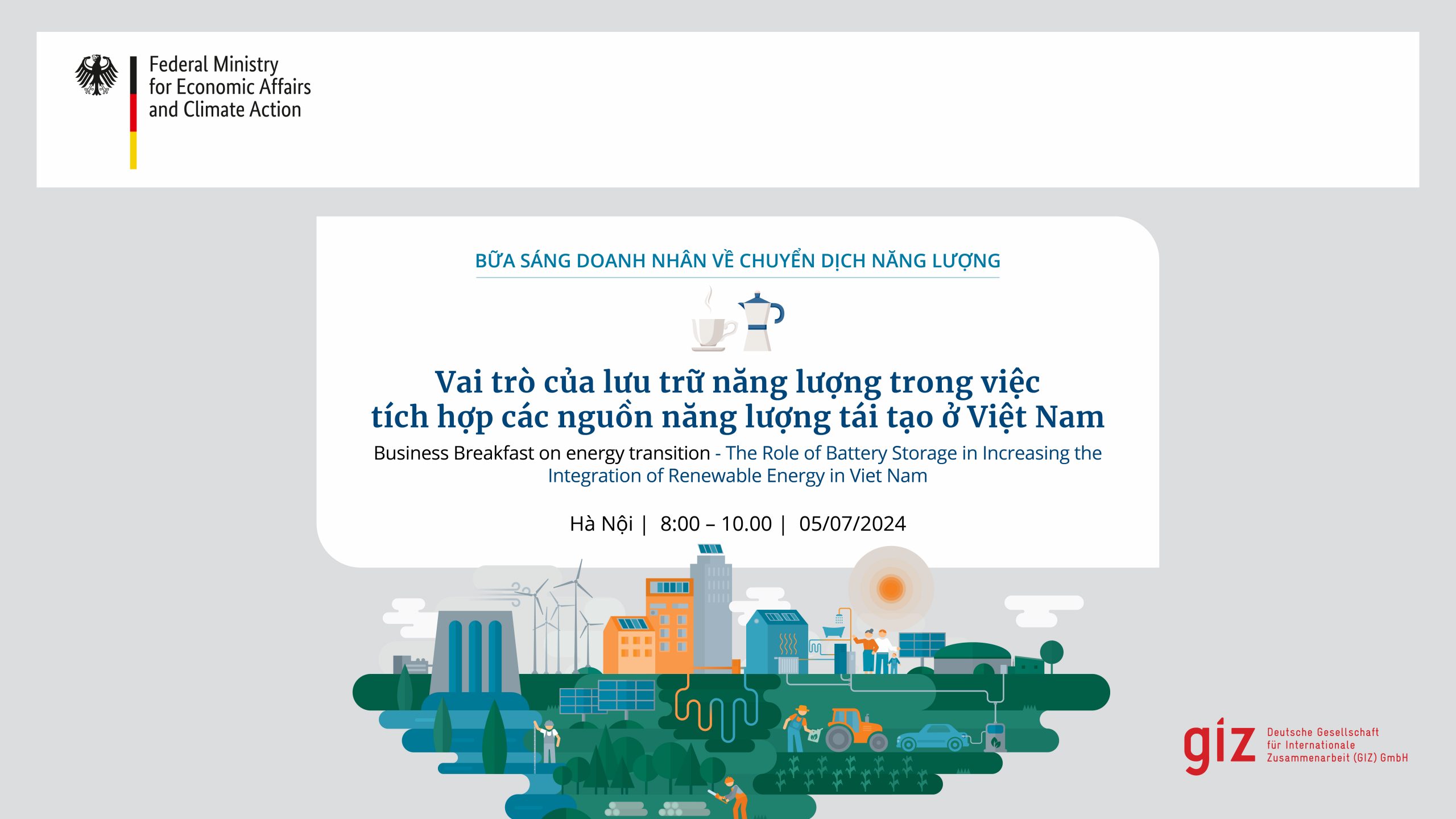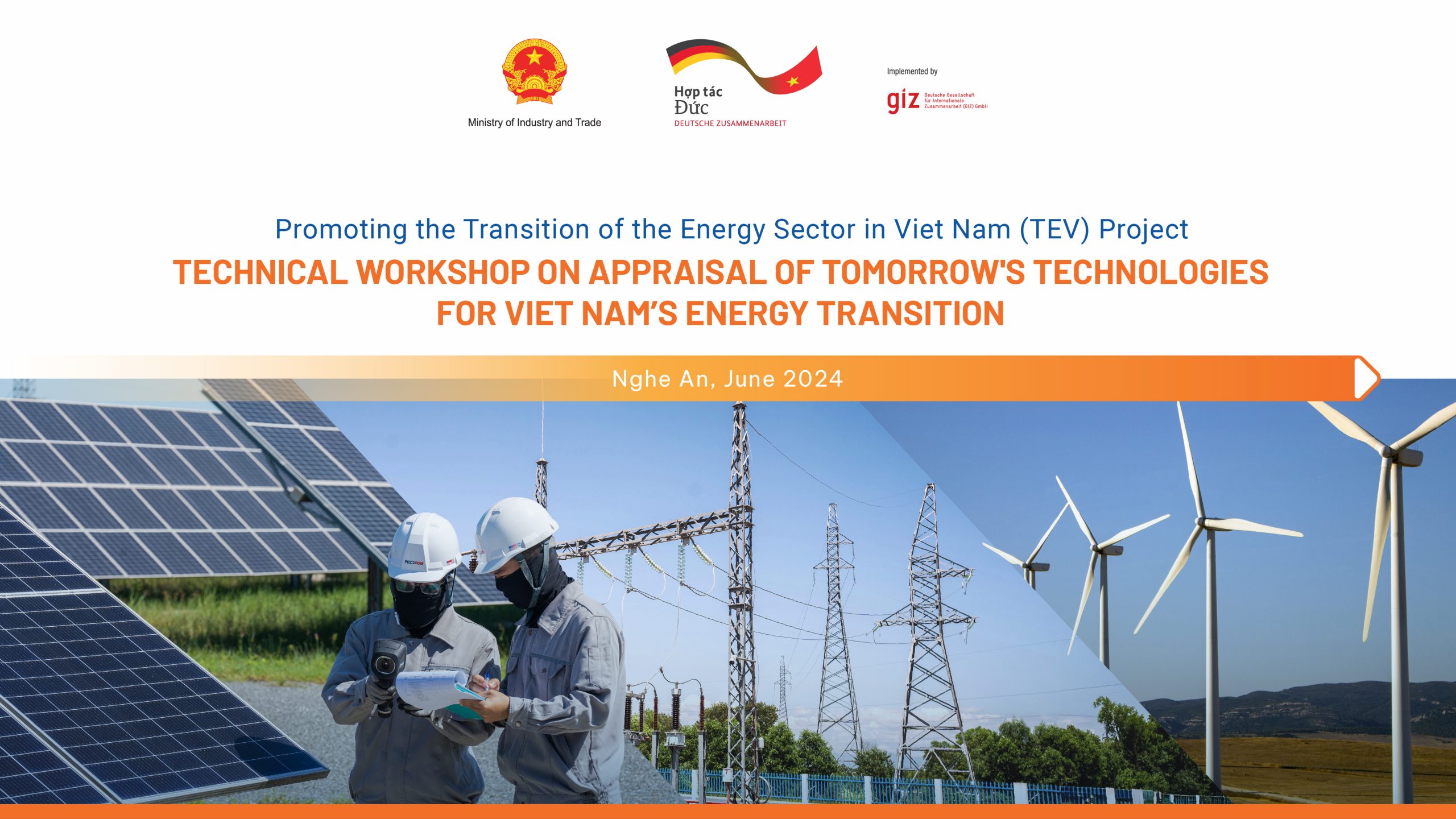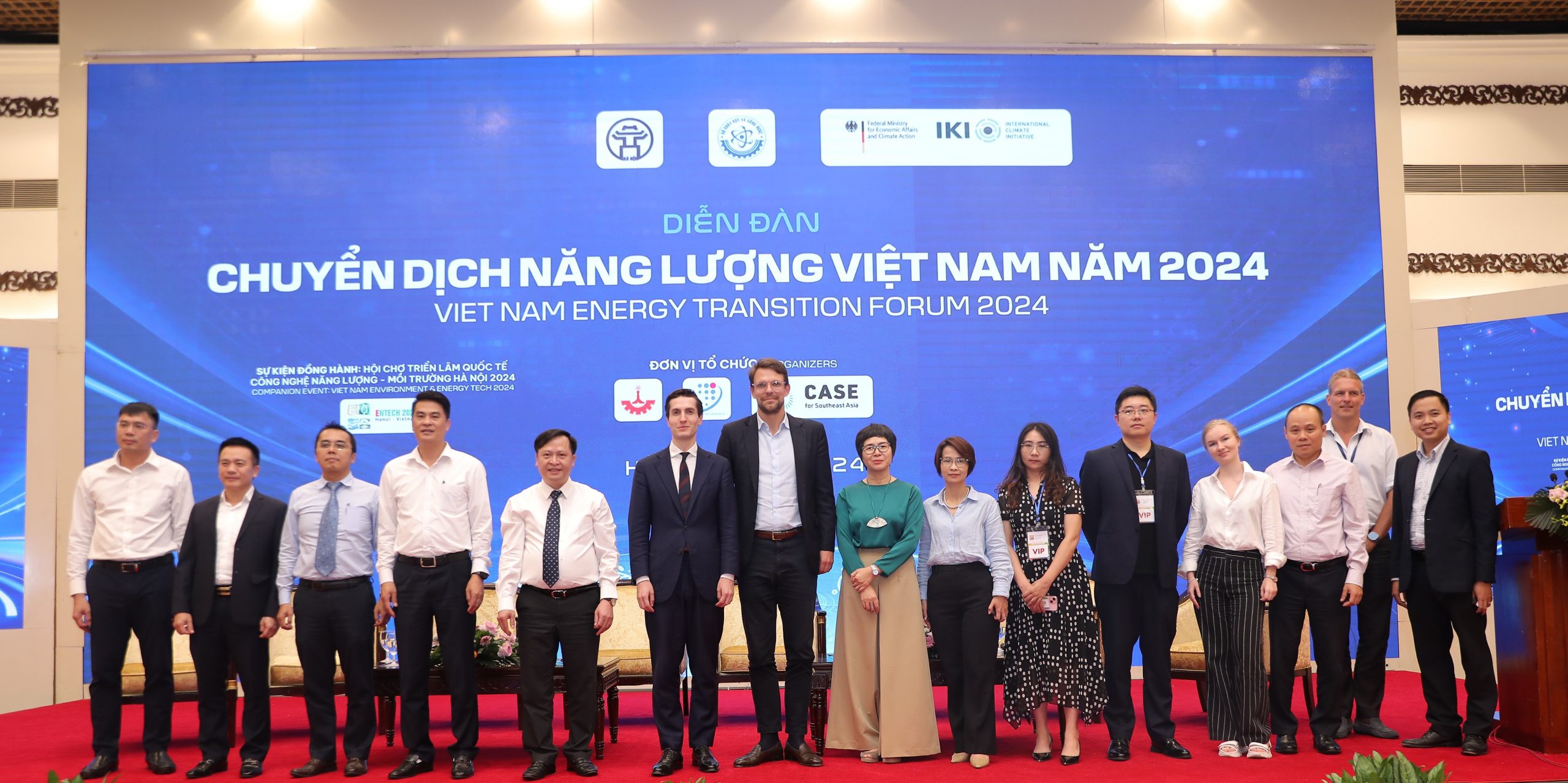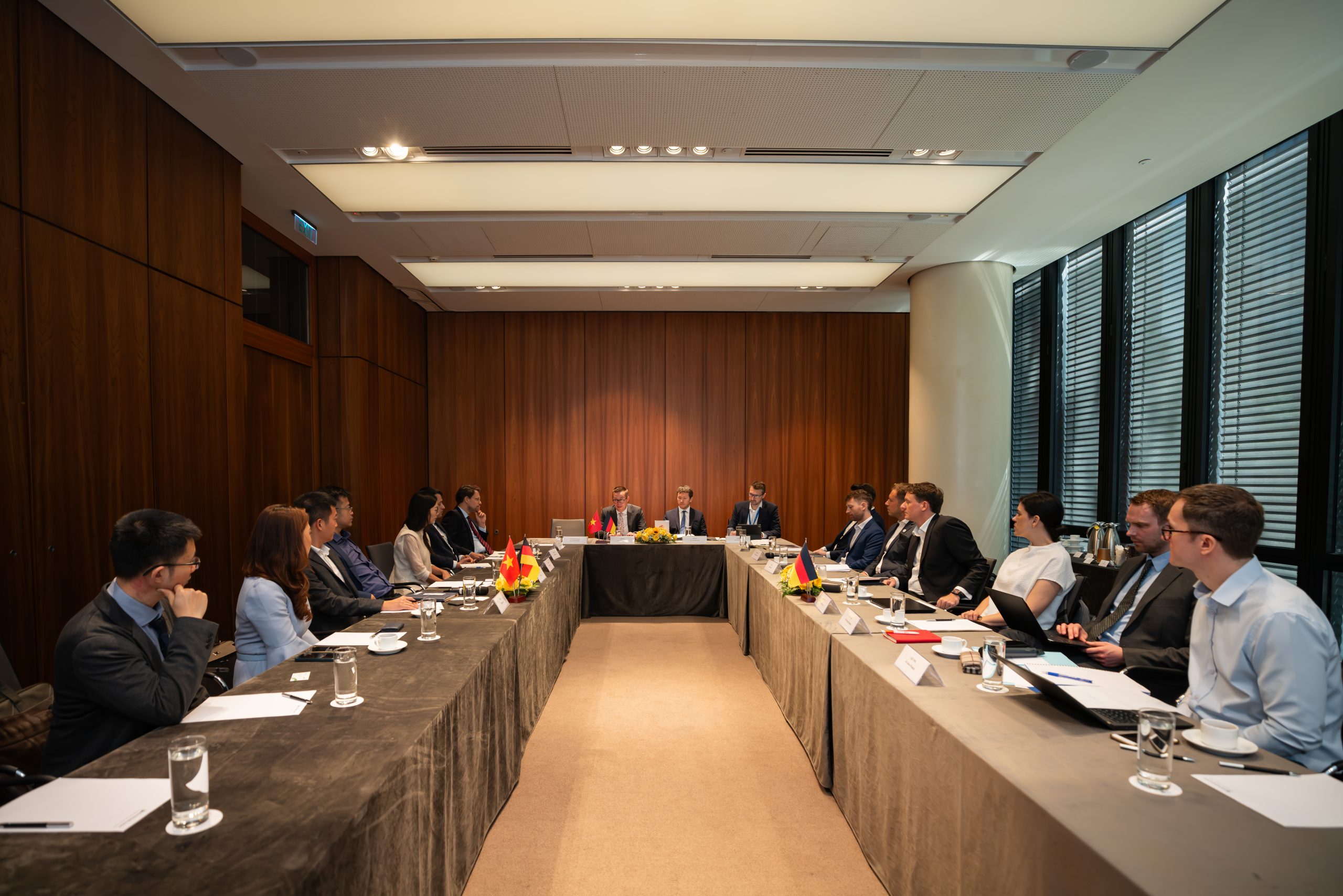15 March 2022 – The Electricity and Renewable Energy Authority (EREA) of the Ministry of Industry and Trade (MOIT) and the Deutsche Gesellschaft für Internationale Zusammenarbeit (GIZ) GmbH jointly organised the workshop ‘Bioenergy development to serve Viet Nam’s COP26 commitments’ today.
The event was a part of the ‘Climate Protection through Sustainable Bioenergy Markets in Viet Nam’ (BEM) project, which is implanted by EREA and GIZ. The project is funded by the German Federal Ministry of Environment, Nature Conservation, Nuclear Safety and Consumer Protection (BMUV) through the International Climate Initiative (IKI).
The workshop focused on analysing Viet Nam’s bioenergy potential and its contribution to the Government’s pledges to last year’s UN Climate Change Conference, known as COP26, and proposing feasible recommendations to overcome current challenges to promote bioenergy in the country.
Participants at the event were Ms. Nguyen Phuong Mai – Deputy Chief of EREA Office, others from the MOIT, representatives from the Ministry of Natural Resources and Environment (MONRE), the Ministry of Agriculture and Rural Development (MARD), departments at provincial levels (DONRE, DARD, DPI, DOIT), banks and financial institutions, embassies, academia, private sector, national and international organisations and experts. More than 100 people participated in the workshop.
In her opening remarks, Ms. Nguyen Phuong Mai – Deputy Chief of EREA Office/MOIT – said that as an agricultural country, Viet Nam has a great potential for bioenergy development. Making use of resources to produce bioenergy plays an important role in contributing to the economic development, ensuring social security and protecting the environment.
She added that in the draft national Power Development Plan (PDP) VIII, the installed capacity of biomass is expected to reach 1,730 MW by 2030, while the current figure is just 350 MW. From now until 2030, all ministries, therefore, need to be involved in the fulfillment of this target, particularly the MOIT and the MARD.
Mr. Nathan Moore – Director of GIZ BEM project – said, ‘This workshop is one step toward addressing challenges in the bioenergy sector, fostering market conditions for both public and private stakeholders and contributing to Viet Nam’s COP26 commitments. It will bring new insights to our collective efforts to recognise bioenergy as a key contributor to Viet Nam’s energy and development goals, as we strive together towards a low-carbon future.’
The workshop consisted of presentations and a panel discussion covering the intersection of COP26 and bioenergy which were delivered by both Vietnamese government ministries, local and international experts.
Specifically, Dr. Luong Quang Huy – Director of MONRE’s Greenhouse Gas Emission Reduction and Ozone Layer Protection Division summarised Viet Nam’s COP26 promises to boost renewable energy development to cut emissions. Meanwhile, Dr. Mai Van Trinh – Director of MARD’s Institute for Agriculture Environment highlighted the nation’s bioenergy potential and the agricultural sector’s ideas to meet COP26 targets. Ms. Pham Huong Giang – Deputy Director of New and Renewable Energy Division of EREA/MOIT updated the audience on current laws and regulations promoting bioenergy and outlined proposals to overcome challenges.
Representing the private sector, Mr. Hoang Anh Dung – Director of Trading and Investment Consulting Company (INTRACO) – talked about the CO2 market in Viet Nam and the world more widely. Ms. Nguyen Thuy Ha – Deputy Director of Foreign Loan Department from the Vietnam Development Bank (VDB) – talked about the access to international funds and financing bioenergy projects in the country.
From international view, Mr. Christoph Kwintkiewicz, an international expert, talked about combined heat and power technology for biomass energy projects and experience to be considered to Viet Nam. Meanwhile, Ms. Le Thi Thoa – GIZ’s Technical Coordinator – shared with the participants about activities and contributions of the BEM project to Viet Nam’s pledges to COP26.
Set to run from 2019 until 2023, GIZ’s bioenergy BEM project aims at improving the preconditions for sustainable use of bioenergy for electricity and heat generation in Viet Nam. BEM consists of three main action areas, namely, i) the improvement the regulatory framework for biomass energy development, ii) the enhancement the capacity of financial institutions, organizations, private sector companies, and individuals involved in the development, and iii) the fostering technology cooperation, and research and development between international and Vietnamese stakeholders of the bioenergy sector.
1. Vietnam’s strategy towards COP26 commitments
2. Bioenergy potential in Viet Nam: Solutions from agriculture sector to meet COP26 commitments
3. Legal framework and regulations promoting bioenergy development in Viet Nam
4. Global carbon market
5. Access to international investment funds and bankability of bioenergy projects in Viet Nam
6. Implement the project “Climate protection through sustainable bioenergy markets in Viet Nam” towards the goal of COP26
7. Bioenery Technolofy – Climate Protection through Sustainable Bioenery Markets in Viet Nam (BEM)



